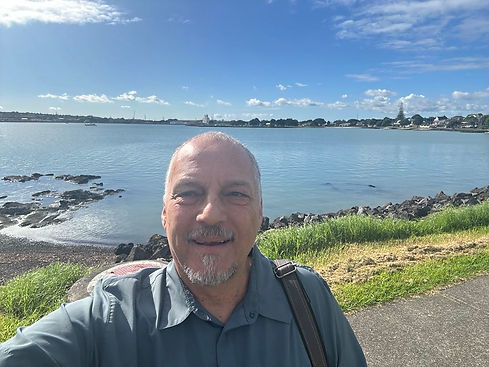
Aubrey
Welsh


A Completed Life (well, almost)


About ten years ago, I started jotting down a chronological 'story' of my life.. For Christmas that year, I shared it with family and a few friends and whilst they enjoyed learning about what I had done and when, it was as boring as hell.
A few suggested I consider turning it into a book of some kind, perhaps, even a memoir. As I wrote short stories around the events and filled in the details about how I felt and what impact the events had on me, I realised this could end up as a 2,000 page book which would be just as boring.
When covid-19 hit the planet, I decided this was the perfect time to fully concentrate on revising, editing, proofreading and culling the contents into a reasonable memoir. And here it is. If you wish to purchase a copy through Amazon.com click on the link below
What is a completed life all about?
I will try and explain what it means to me and how I might have come to believe that
my life is 'complete'.
If you:
are in your 70s, 80s or 90s.
have contributed to a full and rewarding life of employment (and paid your taxes!),
have no direct responsibilities for any persons or organisations,
have achieved a range of personal objectives throughout your life, including travel, personal relationships, asset building,
are debt-free, financially secure and of sound state of mind
— then you might begin to consider yourself well on the way to having lived a completed life.


Why am I thinking about
'a completed life?'
As one ages into one's latter years, you begin to approach retirement and reflect on how you might live out the rest of your life.
If you are healthy, still working, fit, in good shape, have no financial worries and some savings in the bank, you are likely simply to continue life as you know it—doing all the things you usually do.
If you are seriously unwell or have a terminal illness of some kind you may be starting to consider your end of life options. In modern times, there are a wider variety of options available including that of assisted dying should you no longer wish to continue to live.
But for those who fall in-between those two scenarios, life is a little more complicated.

For those who are reasonably healthy but who feel they have had a completed life, there isn't a simple and easy option to end your life with any kind of traditional support.
One option is Voluntarily Stopping Eating And Drinking (VSED). Although this programme is legal in many countries, society hasn't quite caught up with the concept and health organisations are not yet ready to cater for individuals taking it up.
It is not an easy option to choose and MUST be managed through your GP or other health practitioner. Conduct your own research to find out more about it. It is this option I have chosen for my own end-of-life choice when the time is right.
Of course, many elderly folk nearing the end of their natural lives, often simply stop eating and drinking and thus pass away so VSED is not an unusual end of life scenario.
